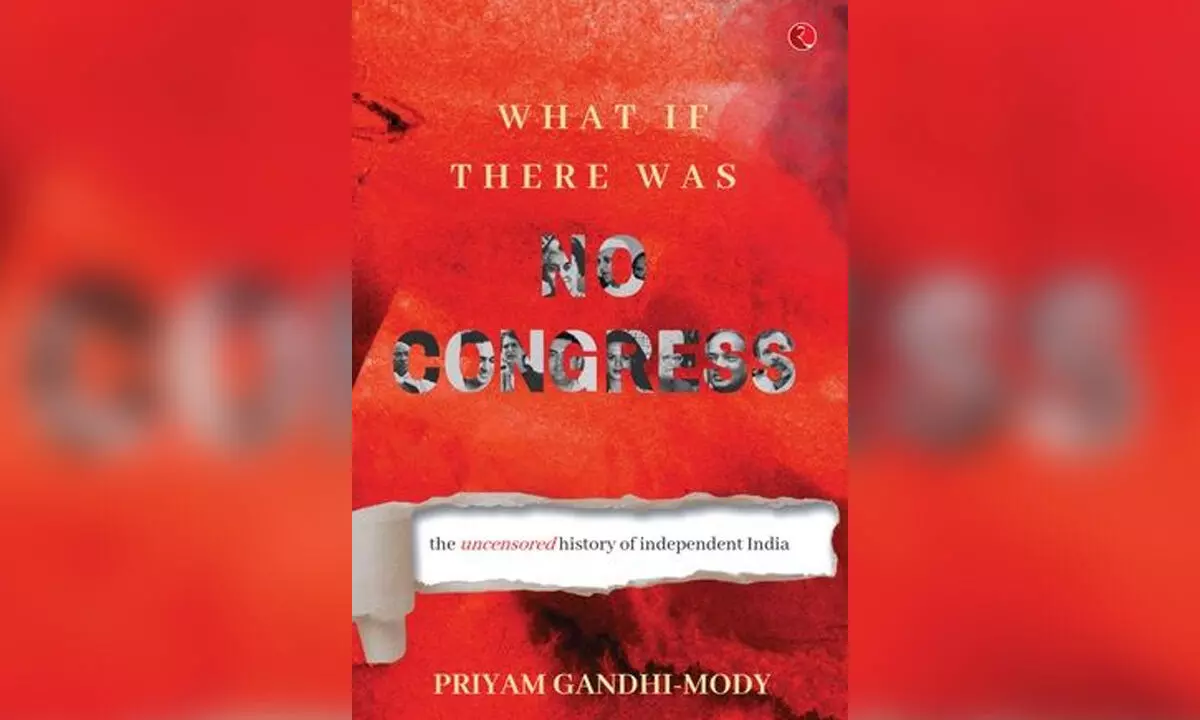New book documents genesis of Gandhi-Jinnah clash that led to Partition

A new book titled ‘What If There Was No Congress’ (Rupa Publication) by author and political brand strategist Priyam Gandhi-Mody has shed light on an elite Indian party which sowed the seeds of Partition by setting off a clash of the egos of two Gujaratis.
A new book titled ‘What If There Was No Congress’ (Rupa Publication) by author and political brand strategist Priyam Gandhi-Mody has shed light on an elite Indian party which sowed the seeds of Partition by setting off a clash of the egos of two Gujaratis.
“There is a famous party that took place in 1914 for [Mahatma] Gandhi when he stopped over in London after returning from South Africa, in which [M.A.] Jinnah was also present. It is believed that this is where the two gentlemen first met and had a conversation, presumably on Indian politics,” writes the author.
Two years later, they met again, this time at a party thrown by the Congress leader Gopal Krishna Gokhale at Jinnah’s house in Bombay, and here is where the earliest signs of the lifelong divide between Gandhi and Jinnah became evident.
Gandhi-Mody writes that at this party, where Jinnah was the host, Gandhi took to the stage at one point and said of Jinnah, “I am so pleased to see that not only is a Muslim a part of the Congress but that he is in charge of his branch of it.”
Jinnah found these remarks rather condescending because not only was he Gandhi’s senior in the legal profession, he had also made a name for himself as a result of the progress he had made in fighting the British in the courts.
Gandhi-Modi writes that Jinnah and the Mahatma had several personal clashes that ended up eventually to the events leading up to Partition.
At the Nagpur session of the Congress in 1920, according to Gandhi-Mody, Jinnah tried to make an agitated plea referring to Gandhi as Mr Gandhi and not Mahatma. He was at once heckled and shut down by Gandhi’s supporters in the audience. “For the thin-skinned Jinnah, being interrupted by his junior colleague’s supporters, was too much of an insult to take in,” notes the author.
Jinnah quickly realised that in front of the godly status that Gandhi had begun to acquire among members and supporters of the Congress because of the Hindu imagery he kept invoking, his own vision of the sub-continent’s future stood no chance.
Gandhi-Mody writes that Jinnah grew increasingly arrogant and self-serving. Many, including Nehru, believed that Jinnah had taken the League leadership to get back at the Congress, which he believed had deprived him of what he thought was deservingly his. Writes Gandhi-Modi, “One of the gravest mistakes the Congress leadership made was to underestimate Jinnah’s intentions and abilities.” By not being able to understand Jinnah’s character, Nehru went on to make errors while dealing with him in the years 1939-48.
Gandhi-Mody notes that several people had several views on Jinnah, but the one point that everyone seemed to concur with was that the founder of Pakistan had a fragile ego and he liked to win, at any cost, famously by trapping his opponents in the details.














